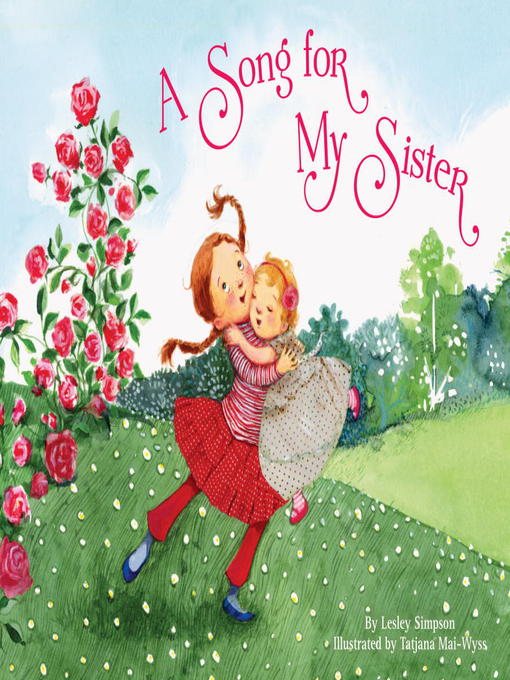
A Song for My Sister
فرمت کتاب
ebook
تاریخ انتشار
2012
Reading Level
0-1
ATOS
1.8
Interest Level
K-3(LG)
نویسنده
Tatjana Mai-Wyssشابک
9780375980046
کتاب های مرتبط
- اطلاعات
- نقد و بررسی
- دیدگاه کاربران
نقد و بررسی

May 1, 2012
There is no specific Jewish ritual for naming a daughter, so many families invent their own. Simpson has invented an entire book to go with it. Wishes come true here, but not right on time. Mira wishes for a sister, and a baby is born four years later. Sound effects are important in this book. When Mira tosses coins into a wishing well, they go "Swish clink clank." The baby makes one noise, "Waaaaaaa!"--there are always seven as in a row. She cries when her parents try to feed her and when Mira bounces her or shows off her best cartwheel. The word "Waaaaaaa!" appears in bright red letters, and readers might get tired of seeing it on page after page, but then, that's the point. By the day of the naming ceremony, even the rabbi looks a little worn out. (Progressive readers will be happy to see that she's a female rabbi.) Mira, of course, saves the day, if not right on time. The book ends with the sounds of Jewish music, Mira singing "Dim-dim-dee-dee-dim" and her sister singing "Goo-goo-ga-ga-ga." Even young readers may see the plot twists coming, but the details are funny (Mira wants to name the baby Siren), the ending is genuinely moving, and some families may want to borrow the naming ritual for themselves. A neat melding of religious traditions into the familiar new-sibling story. (Picture book. 3-8)
COPYRIGHT(2012) Kirkus Reviews, ALL RIGHTS RESERVED.

June 1, 2012
K-Gr 2-Mira wanted a sister; her wish came true. However, after eight days of listening to the baby cry, the family members are at wit's end. No matter what they do-play the recorder, burp and bounce the baby, she wails. On the eighth day, readers learn about the Jewish tradition simchat bat, which is a baby-naming ceremony. After the rabbi arrives, Mira sings, the crowd repeats a refrain, and the baby coos along. A bond occurs in the form of a sister duet in this newly expanded family. The baby is named Shira, which means "song" and rhymes with Mira. The next day, Mira turns seven and wishes to always sing duets with her sister. Mai-Wyss's attractive illustrations have a springlike, watercolor appearance and show a much older child sitting on mother's lap. Even though this is a unique tale about a religious tradition, it represents a universal theme of a new arrival who just needs time to fit into the routine of an established household. A supplemental purchase.-Blair Christolon, Prince William Public Library System, Manassas, VA
Copyright 2012 Library Journal, LLC Used with permission.

























دیدگاه کاربران